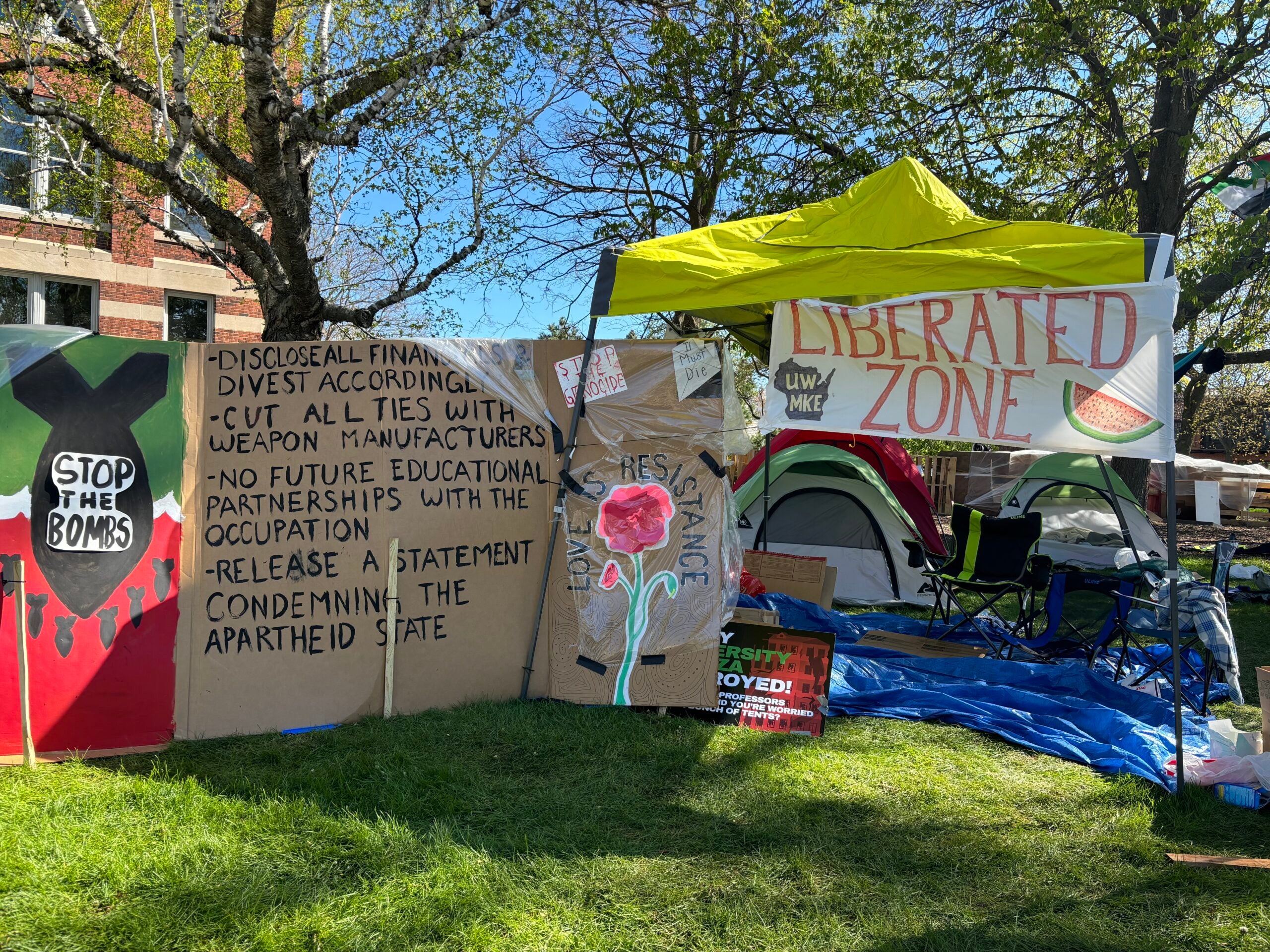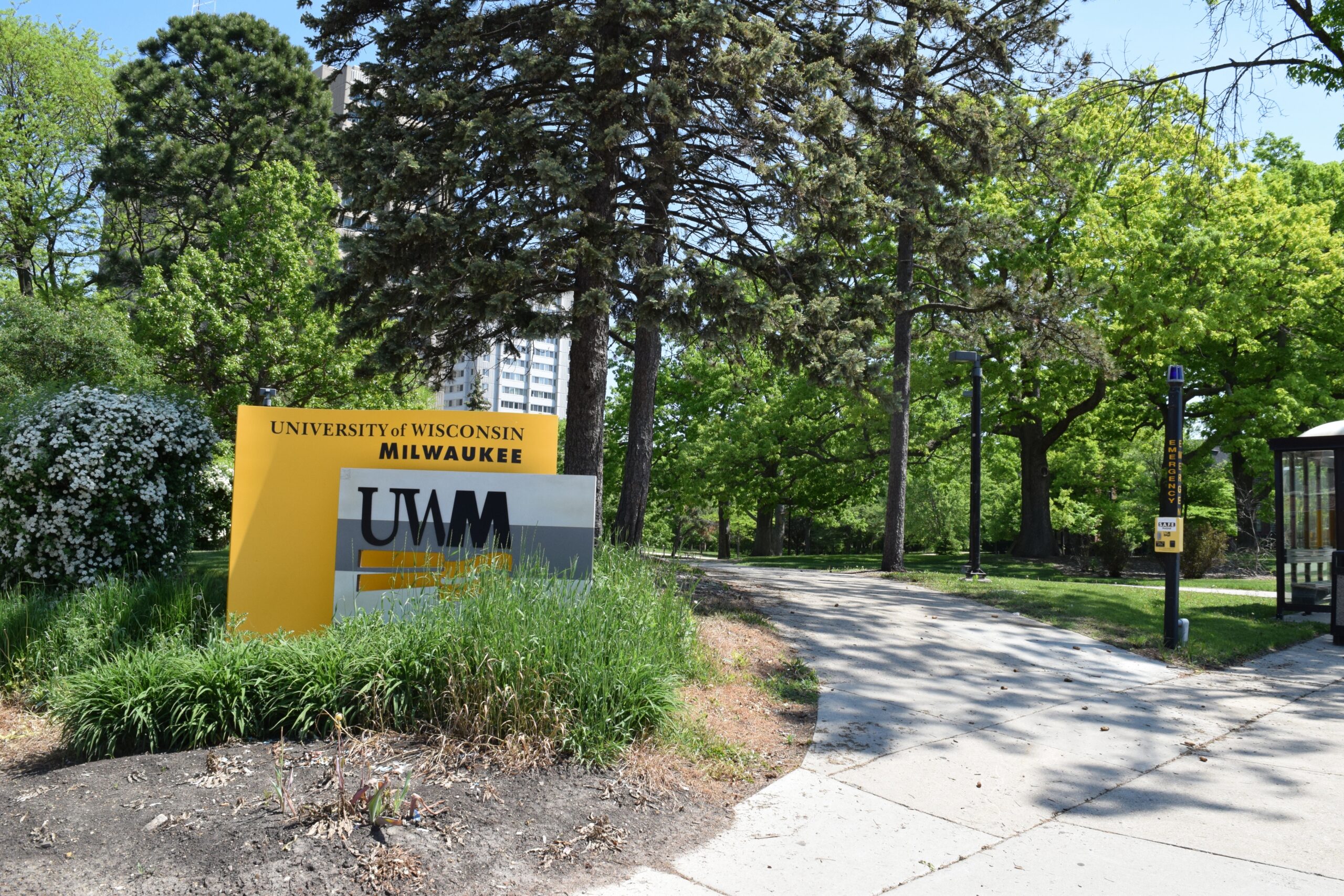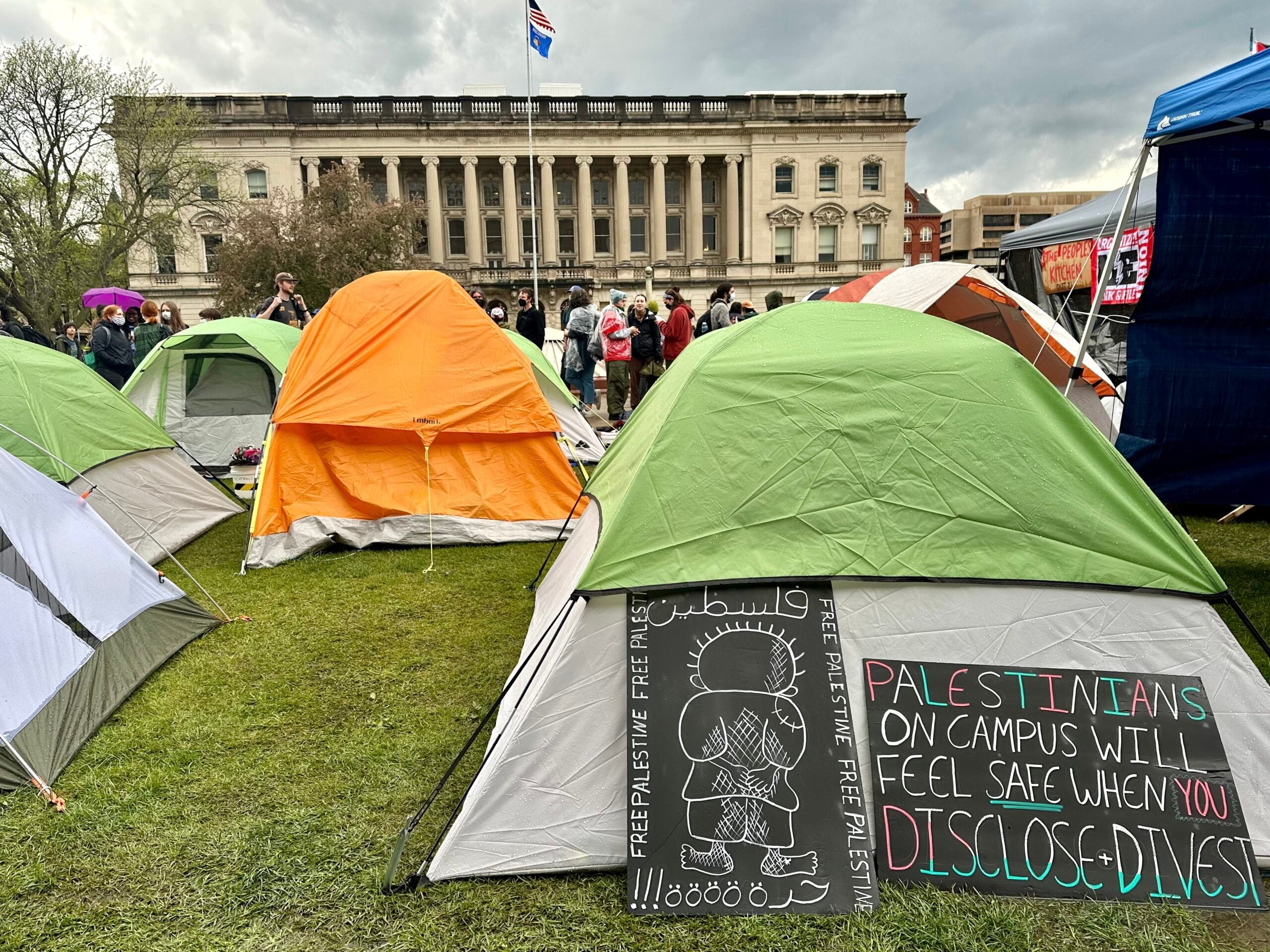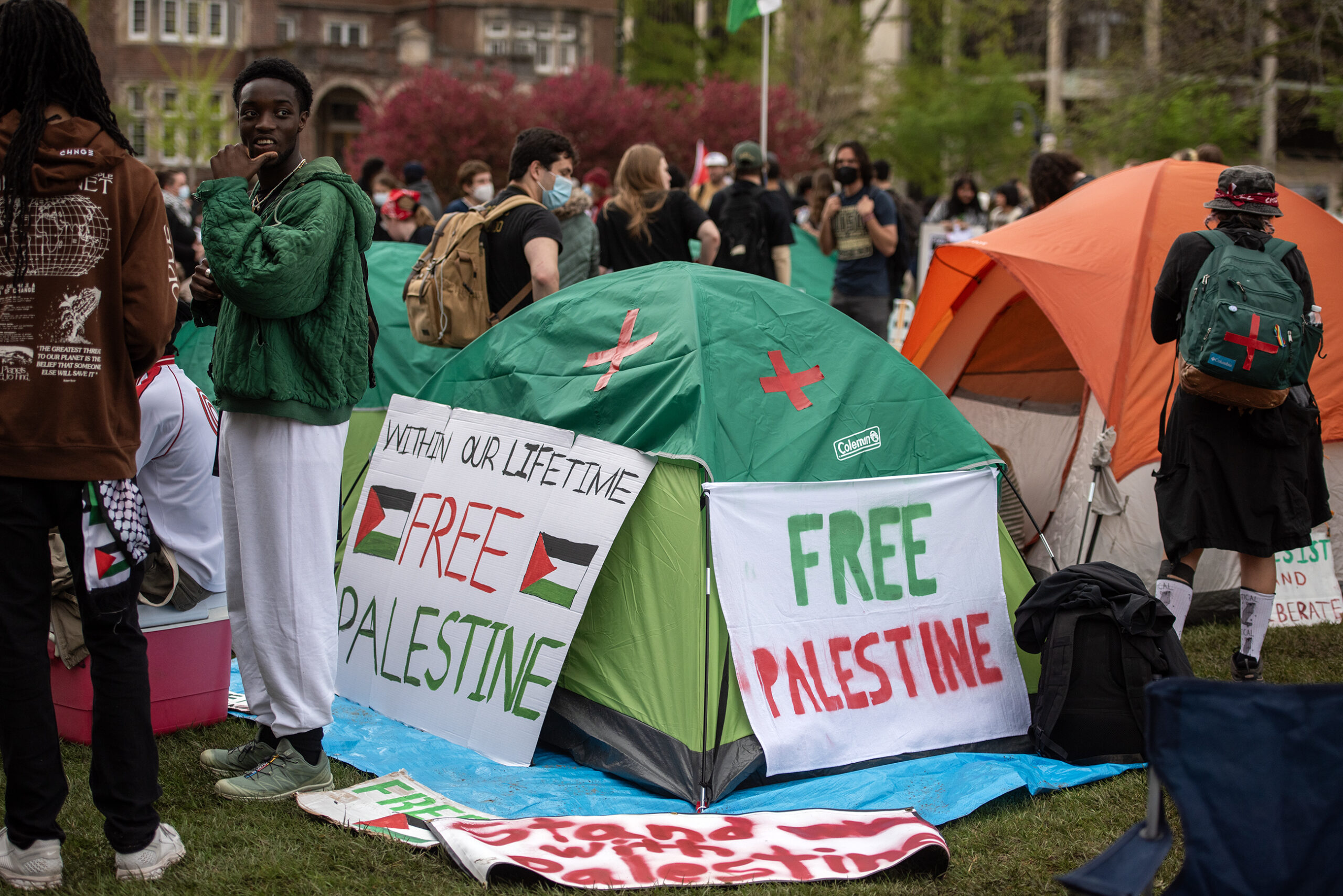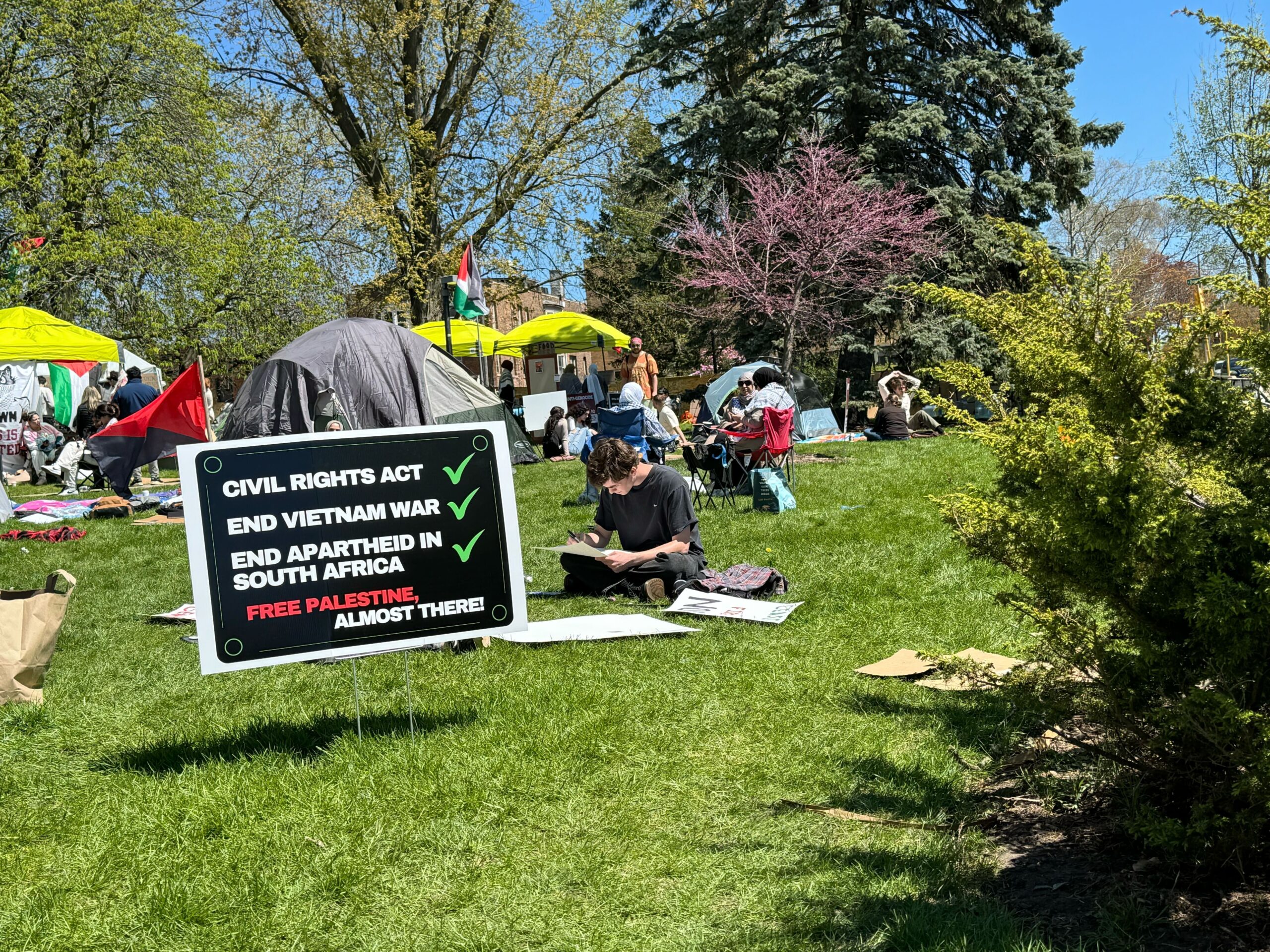University of Wisconsin-Milwaukee Chancellor Mark Mone issued an apology Tuesday after Jewish groups and Universities of Wisconsin President Jay Rothman condemned a deal he struck with pro-Palestinian protestors to end an encampment on campus.
“It is clear to me that UWM should not have weighed in on deeply complex geopolitical and historical issues. And for that, I apologize,” Mone said in a statement to the campus community.
“I acknowledge that it is an increasingly difficult time for many Jewish students at UWM and across America. I’ve also heard that some students have not felt comfortable reporting their concerns or experiences. This distresses me,” he said. “The expressions of grief and frustration over the conflict in the Middle East must not destabilize our shared sense of humanity or be twisted into a platform to spread hatred. “
Stay informed on the latest news
Sign up for WPR’s email newsletter.
Mone said UWM “resolutely condemns antisemitism, just as we do Islamophobia and all other forms of hatred.”
“As we move forward, I am dedicated to continued listening, conversation and engagement with all our students,” he said.
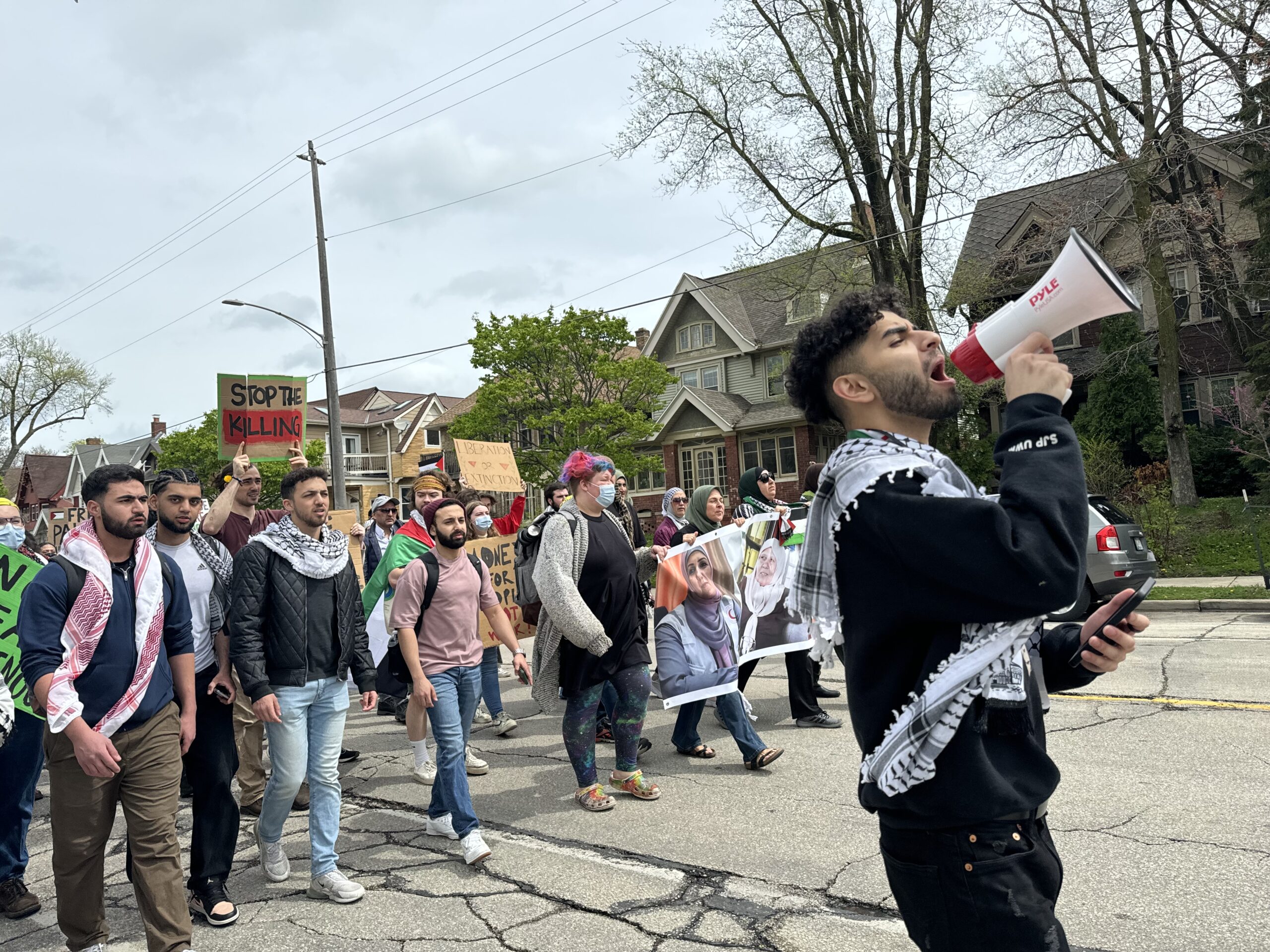
Last week, Hillel Milwaukee, the Milwaukee Jewish Federation and the Anti-Defamation League Midwest called Mone’s agreement with the protestors “among the most offensive and dangerous of any university agreement reached with encampment protesters over the last two weeks.”
The groups said Mone had refused to meet with Jewish students and failed to address antisemitic incidents on campus.
“Chancellor Mone gave protesters who fueled hate and violated school policies at UWM a seat at the table and even invited them to nominate individuals and faculty to serve on key university committees and working groups,” the groups said last week. “The chancellor’s decision to grant immunity to individuals who mocked and broke school rules and the law sets a dangerous precedent for future incidents on campus.”
UWM’s deal to end the encampment included a call for a ceasefire in Gaza. It also quoted a United Nations report that said “more than 34,000 innocent Palestinians, approximately 60% of whom were women, children and the elderly, had been killed” and said the International Court of Justice had called Israel’s actions “a plausible genocide.”
A spokesperson for the university said yesterday’s apology does not rescind the agreement with the protestors.
“We are focused on moving forward and what we can do to better support all of our students,” said Angelica Duria, the university’s director of strategic communications. “We are acknowledging the pain this caused for some in our Jewish community and that we should have been more explicit in our support for this community. ”
Rothman had called the UWM agreement “disappointing” in a series of social media posts.
“We understand that the current situation is challenging, complex, and not subject to easy resolution,” Rothman said in response to the agreement. “Our public universities have a responsibility to focus on the educational mission in support of all of our students and the state of Wisconsin.”
Rothman, ADL respond to apology
On Tuesday, Rothman said he appreciated that Mone “had reassessed his approach” and apologized.
“Chancellor Mone has dedicated his career to UWM, and I know he is committed to ensuring that all students feel equally welcome, safe, and supported as members of one UWM campus community,” Rothman said.
Trent Spoolstra, associate regional director of the ADL-Midwest, said the apology “seems a little empty.”
Spoolstra said Mone could have met with Jewish students months ago and the chancellor’s statements could have made mention of the Oct. 7 attack by Hamas and antisemitic incidents on campus.
“To us, that’s the bare minimum,” Spoolstra said.
He said his organization would like to see the agreement reversed, and the university to say that campus rules about protesting and camping “should apply to all students on campus, are going to be enforced on all students on campus, and nobody’s gonna get special privileges.”
Spoolstra said antisemitic activity and harassment has taken place on campus since October.
“This wasn’t something that just took place over a two-week period,” he said. “This entire school year for Jewish students has been probably the toughest in recent memory.”
Wisconsin Public Radio, © Copyright 2025, Board of Regents of the University of Wisconsin System and Wisconsin Educational Communications Board.
